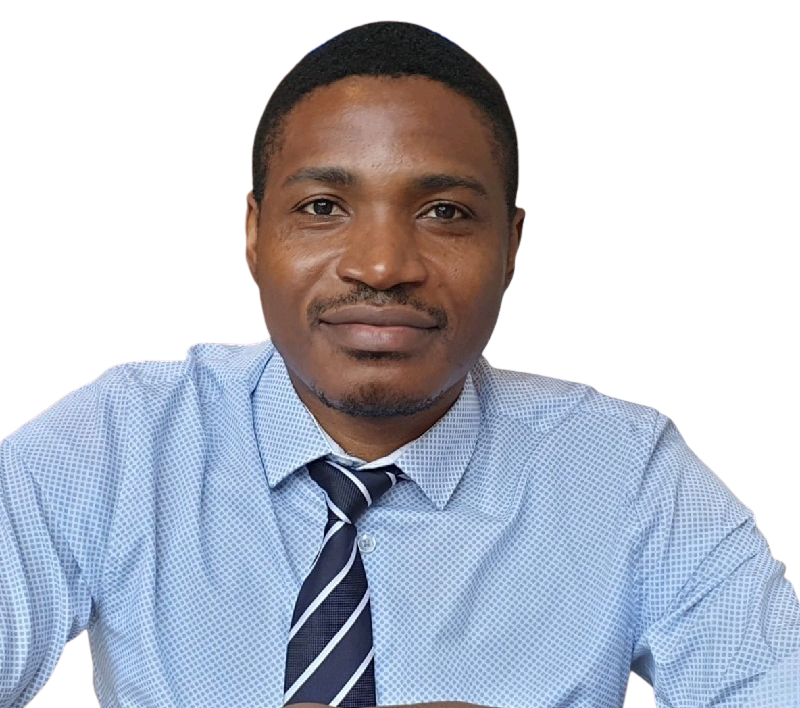My Role Models & the Journey that brought me to LIDA
In their September induction, all nine of this year’s LIDA data scientist interns were asked to bear three things in mind which derive from the Programme’s mission statement, Data Science for Public Good: belonging, community and helping others. They were introduced to LIDA as a community of scientists who share the core values of interdisciplinarity, data for good, and collaboration for innovation. In line with ongoing discussions at the University around its core values, LIDA’s interns are the latest exemplars of the Institute’s values of multi-disciplinary collaboration, inclusivity and global citizenship.
We asked intern Ifeanyi Chukwu to share his insights into role models, his journey into data science, and LIDA values.

LIDA Data Scientist Intern, Ifeanyi Chukwu
My journey into data science was long overdue. My previous background was in marine life sciences, with academic training both in Nigeria and Japan. The disruption of the COVID-19 pandemic triggered a deep reflection in my career journey; I knew data science was my desired path, but I was not sure how to get started. My recently completed MSc programme in Applied AI and Data Analytics at Bradford became the fulcrum for this new path. I was able to massively increase my data science skillset and had the privilege of working on engaging projects. The latest of these is my LIDA internship project, A geo-demographic analysis of the impact of COVID-19 on urgent cancer referrals, using both local and national cancer data.
The pandemic is an especially important time to be thinking about role models, and about who inspires us. Various people have played key roles in shaping my life events at different stages. A good role model, to me, is someone who inspires me to the extent that I want to emulate aspects of them. I have grouped my role models into three kinds based on the level of interactions or proximity I had with them. They include: the ‘distant’ role model, the ‘chance’ role model and the ‘accessible’ role model.
One of my earliest role models was a ‘distant’ one: the heroic American neurosurgeon, Dr Ben Carson. As a boy, Dr Carson had limited opportunities and failed many of his subjects at school, but ultimately beat all the odds to achieve tremendous success in his career. I had a very humble background in Nigeria. I didn’t have access to electricity until age 11 in the early 2000s, and was unable to read and write until my teens. When I could read, Dr Carson’s books inspired me, and his personal story of perseverance in the face of adversity resonated with me.

Dr Ben Carson, Neurosurgeon
My academic interest turned to marine sciences after unsuccessful attempts to try Dr Carson’s career path. Several years of training as a marine life scientist culminated with my study involving sequencing the DNA of fish brains. During my MSc programme in 2018 at Hokkaido University, Japan, I met a ‘chance’ role model when I attended a seminar by a Canadian scholar. I was flabbergasted by the millions of data points being generated in their automated laboratory. The scholar, seeing my enthusiasm, urged me to make a foray into data science. I completed my studies in Hokkaido at the onset of the pandemic. With many activities being grounded, now was the perfect period of reflection to explore and pursue my data science interest. In due course, I relocated to the UK and enrolled in the Applied Artificial Intelligence and Data Analytics MSc programme at Bradford.
In the UK, I have found real-life work experience to be as, if not more, important than academic qualifications. I was lucky to join the first cohort of the HDR UK black internship program, where I worked on a real-world health data project at the University of Cambridge in the summer of 2021. It was during this period that I met my ‘accessible’ role model. Dr Amy Mason, my HDR UK project mentor, became a major influence to me in data science because of her vast knowledge on health data research and causal inference, which she generously shared. Dr Amy’s work involves using a mixture of genomic, lifestyle and health data records from consortiums like the UK Biobank and a statistical method known as Mendelian randomization to do causal inference research. The focus of her work is to investigate how different lifestyles like smoking and exercise influence health outcomes like cardiovascular disease. My work placement with Dr Mason became my first experience in health data research.
It was during the HDR UK internship that I heard about the LIDA Data Scientist Internship Programme. I became certain that this Internship would be vital in shaping and advancing my budding data science career, because of the collection of world-class data science resources and top-notch expertise that LIDA offers. I gave the application my all and grabbed the internship opportunity with both hands!
Several things about the LIDA Internship are a source of inspiration for me, firstly and most crucially the nature of the Programme itself. The LIDA Internship Programme is fundamentally designed to enable interns to have the best possible experience whilst they undertake their respective projects under the mantra ‘data science for public good’. Data have been said to be the new oil, because of the immense value that can be derived from them. On the other hand, when data is misused, it can be harmful and breed distrust between stakeholders in the data lifecycle. It is important to me personally that LIDA is at the forefront of the push towards data science for public good and responsible data practices.
As a member of the sixth cohort of LIDA data scientist interns, I began my internship with a holistic induction week, comprising of training and various ‘getting to know you/LIDA’ sessions, and have a well-structured support system in place for the duration of my next 12 months. There are various robust training programmes in important domains that we interns can access, in addition to solid supervisory support for our 6-month projects. This preparedness and sense of community ensures that we have the best experience whilst owning the delivery of a data science project and developing our critical data science skillsets.
My LIDA internship project, involving working on an urgent cancer referrals data set, consolidates my research interest and exposure to health data research. The COVID-19 pandemic has had a profound effect on the “normal” flow of things everywhere. The impact was even more devastating on urgent cancer referrals early in the pandemic, with referrals falling by at least 70% at the nadir (Lai, 2020). Working with Prof Geoff Hall et al., I am investigating the geodemographic attributes of the urgent cancer referrals so that we can infer the social groups most impacted by the drop in urgent cancer referrals. This will inform optimum resource redistribution as society recovers from the pandemic.
The nature and scale of this project – and my conviction of the public good waiting to be unlocked by it – has become a source of daily inspiration for me. Additionally, I’m inspired by the fine blend of the interdisciplinary team that constitutes my project group, including data scientists that are health care and geospatial specialists. My interactions with the team members have already profoundly broadened my horizons. I’m inspired by the depth of knowledge and experience of my team, and am excited to have individuals from my project team who now double as my latest ‘accessible’ role models in data science.
References
Lai AG and Pasea, L; Banerjee, A; Hall, G; Denaxas, S; Chang, WH; Katsoulis, M; Williams, B; Pillay, D; Noursadeghi, M and others, Estimated impact of the COVID-19 pandemic on cancer services and excess 1-year mortality in people with cancer and multimorbidity: near real-time data on cancer care, cancer deaths and a population-based cohort study. British Medical Journal (2020).
